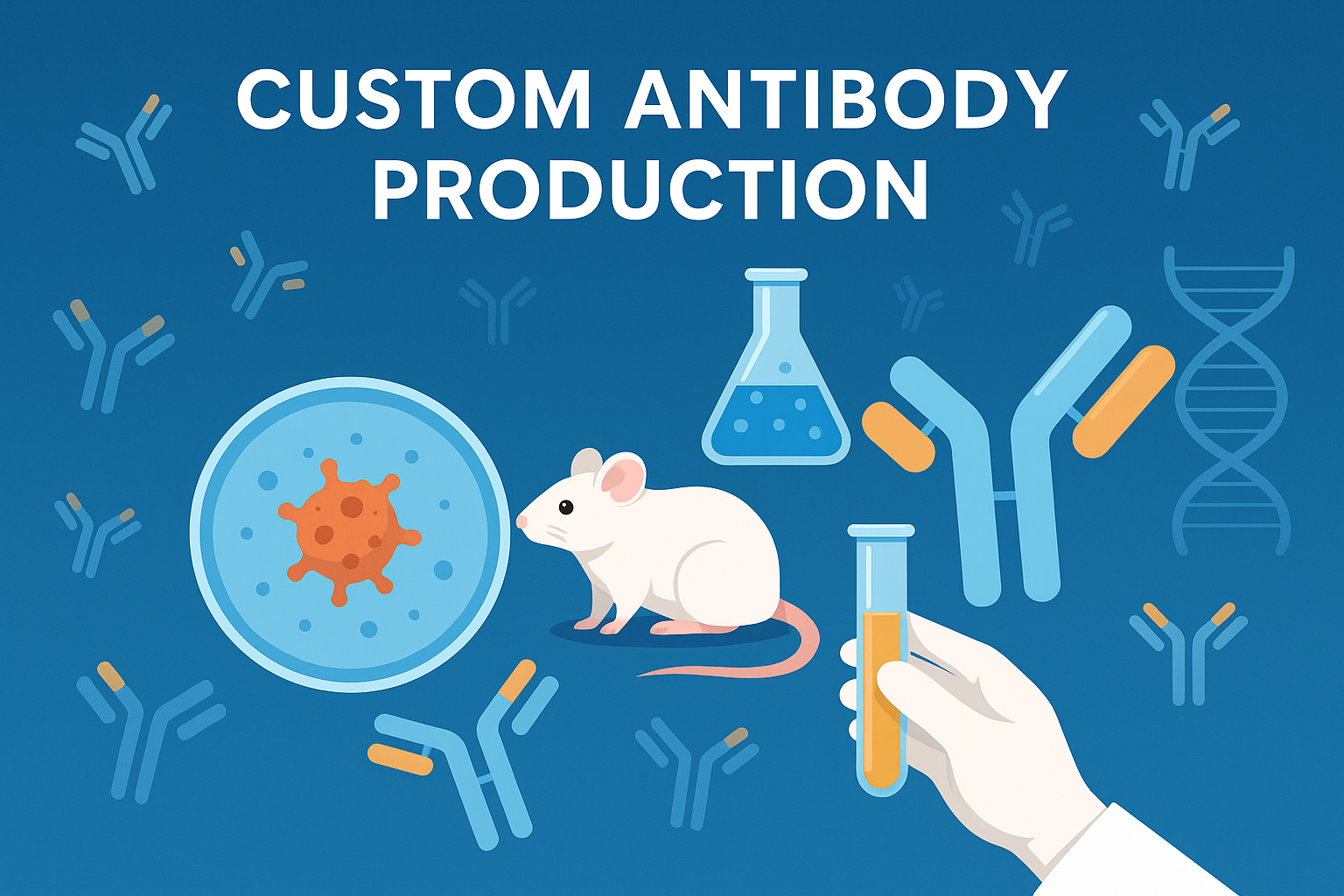The process of custom antibody production typically involves several key steps:
The first step is selecting the antigen, which is typically a protein, peptide, or other biomolecule that the antibody will recognize. It is essential that the antigen is specific to the biological target of interest to ensure high-affinity binding.
Once the antigen is prepared, it is introduced into an animal, usually a rabbit, mouse, or goat, to stimulate an immune response. The animal’s immune system generates antibodies specific to the antigen during this phase.
- Harvesting Serum or Cells
After sufficient immune response is achieved, antibodies are harvested either from the animal’s serum (for polyclonal antibodies) or from hybridoma cells (for monoclonal antibodies). Hybridoma technology involves fusing B cells from the animal with myeloma cells to create immortal cell lines that produce large amounts of a single type of antibody.
The antibodies are then purified using techniques like affinity chromatography to isolate the target antibodies from other proteins in the serum.
To ensure the antibody's specificity and affinity for the antigen, various characterization techniques are used, including ELISA, Western blotting, and flow cytometry. This step is crucial for validating the quality and reliability of the antibody for its intended applications.
In the same contexte here is an exemple using Custom Antibody Production

